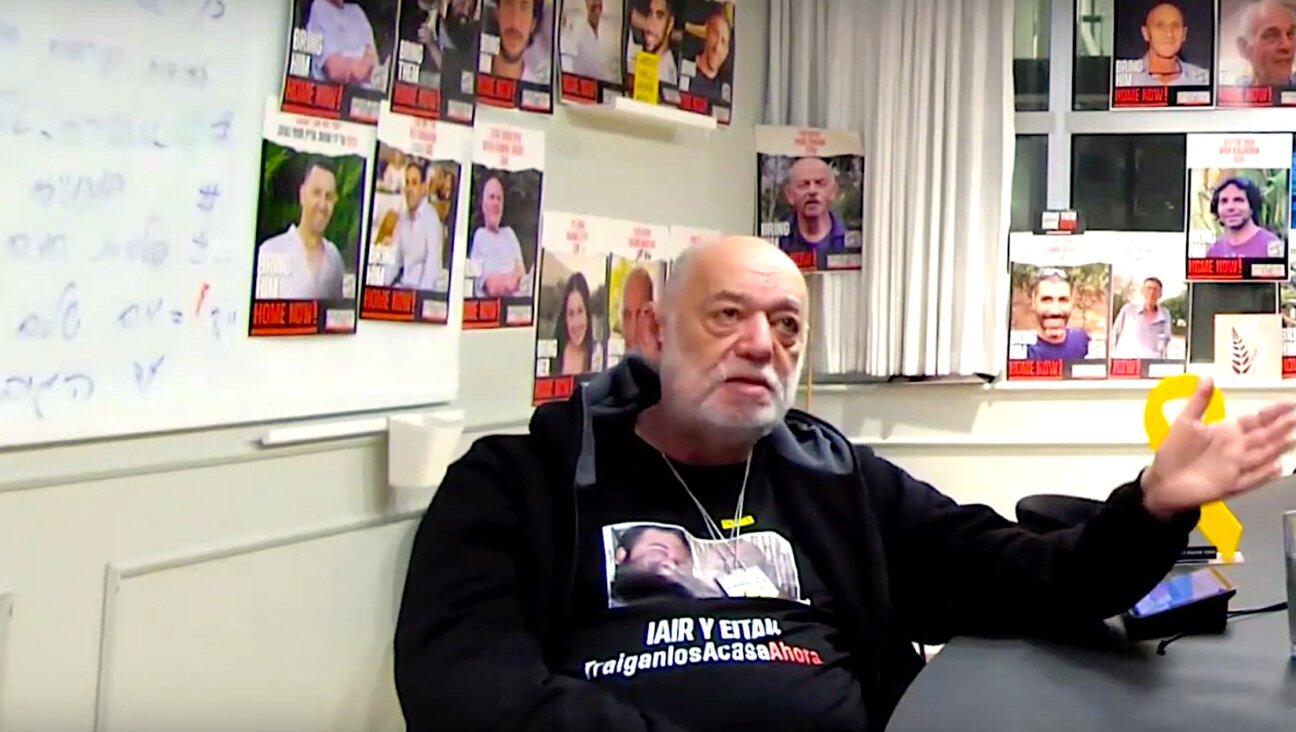Israel Shelling Kills 15 at Gaza U.N. School — 17 at Market

Image by getty images
(Reuters) — Israeli shelling killed at least 15 Palestinians sheltering in a U.N.-run school and another 17 near a street market on Wednesday, Gaza’s Health Ministry said, with no ceasefire in sight after more than three weeks of fighting.
Israel’s security cabinet convened to discuss a revamped Egyptian proposal for a truce but it was unclear whether any decision was imminent that could halt a 23-day conflict in which nearly 1,400 people, mostly civilians, have died.
Some 3,300 Palestinians, including many women and children, were taking refuge in the school in Jabalya refugee camp when it came under fire around dawn, the United Nations Relief and Works Agency (UNRWA) said.
“Our initial assessment is that it was Israeli artillery that hit our school,” UNRWA chief Pierre Krahenbuhl said in a statement after representatives of the agency visited the scene and examined fragments, craters and other damage.
Blood splattered floors and mattresses inside classrooms at the Jabalya Girls Elementary School and survivors picked through shattered glass and debris for flesh and body parts to bury.
“I call on the international community to take deliberate international political action to put an immediate end to the continuing carnage,” Krahenbuhl said.
The Gaza Health Ministry put the number of dead in the school attack at 15 with more than 100 wounded.
An Israeli military spokeswoman said militants had fired mortar bombs from the vicinity of the school and troops shot back in response. The incident was still being reviewed.
The army said three Israeli soldiers were killed on Wednesday when a booby-trap bomb exploded in a tunnel shaft they had uncovered in a residence in the southern Gaza Strip.
UNRWA said on Tuesday it had found a cache of rockets concealed at another Gaza school – the third such discovery since the conflict began. It condemned unnamed militant groups for putting civilians at risk.
Krahenbuhl said the Jabalya school’s precise location and the fact that it was sheltering thousands of displaced people had been communicated to the Israeli military 17 times, with the last notification just hours before the fatal shelling.
“EARTHQUAKE-LIKE RESPONSE”
The chief Israeli military spokesman, Brigadier-General Motti Almoz, said the offensive against militants in the Hamas Islamist-dominated Gaza Strip had been broadened slightly.
In a separate incident, Israeli shelling killed at least 17 people and wounded about 160 others near a fruit and vegetable market in Shejaia, a heavily bombarded neighborhood on the eastern outskirts of the city of Gaza, the Health Ministry said.
Witnesses said the crowd had gathered to watch a petrol station, hit earlier, burn in the distance. The Israeli military had no immediate comment.
“Such a massacre requires an earthquake-like response,” Hamas spokesman Fawzi Barhoum said.
The army said more than 50 rockets were fired from the teeming coastal enclave into Israel on Wednesday, causing no reported casualties or damage.
According to the Gaza Health Ministry, 1,323 Palestinians, mostly civilians, have been killed since Israel began its offensive on July 8 with the declared aim of halting cross-border rocket fire. Ninety-six Palestinians were killed on Wednesday alone.
On the Israeli side, 56 soldiers and three civilians have been killed. Public support remains strong for continuing the military operation in the hope of preventing future flareups.
The army has said the main mission of its ground incursion is to locate and destroy tunnels that militants have built under the frontier and have used to launch attacks inside Israel.
Mohammed Deif, the shadowy leader of Hamas’s armed wing, said in a broadcast message on Tuesday that Palestinians would continue confronting Israel until its blockade on Gaza – which is supported by neighboring Egypt – was lifted.
Israel has balked at freeing up Gaza’s borders under any de-escalation deal unless Hamas’s disarmament is also guaranteed.
PROPOSAL REVISED
Egypt said on Tuesday it was revising an unconditional ceasefire proposal that Israel had originally accepted but Hamas rejected, and that a new offer would be presented to Palestinian representatives.
In previous bouts of fighting between Israel and its neighbors, the United States has often leaned on the Israelis to stop after incidents that caused high civilian casualties. Washington appears to have less sway with either side this time.
Israel says Hamas is ultimately responsible for such casualties because its fighters, including rocket launching squads, operate in densely populated residential areas. The army has warned civilians to evacuate whole neighborhoods before military operations.
The United Nations said Israeli bombing over the past three weeks has destroyed or severely damaged 4,000 Palestinian homes, scores of schools and almost two dozen health facilities.
Some 240,000 people in the Gaza Strip had sought refuge in U.N. schools or with relatives or friends, the U.N. said.
Both U.S. President Barack Obama and the U.N. Security Council have called for an immediate ceasefire to allow relief to reach Gaza’s 1.8 million Palestinians, followed by negotiations on a more durable end to hostilities.
A message from our Publisher & CEO Rachel Fishman Feddersen

I hope you appreciated this article. Before you go, I’d like to ask you to please support the Forward’s award-winning, nonprofit journalism so that we can be prepared for whatever news 2025 brings.
At a time when other newsrooms are closing or cutting back, the Forward has removed its paywall and invested additional resources to report on the ground from Israel and around the U.S. on the impact of the war, rising antisemitism and polarized discourse.
Readers like you make it all possible. Support our work by becoming a Forward Member and connect with our journalism and your community.
— Rachel Fishman Feddersen, Publisher and CEO























